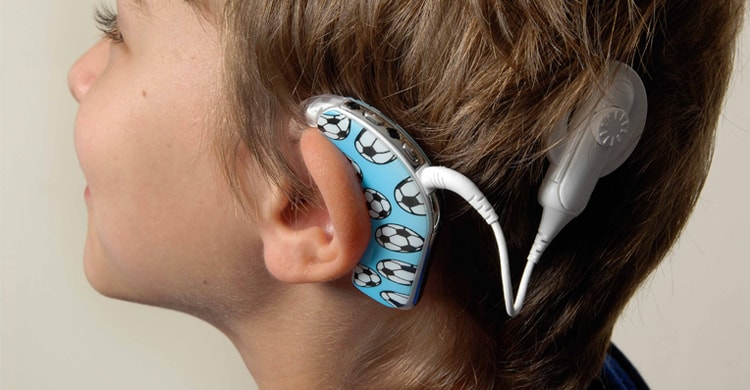
Cochlear implant surgery in India at affordable cost
25 April 2023
We may not emphasise it enough but listening is an equally important part of communication as is speaking. There are millions of people in the world who are unable to listen because they have hearing impairment, which deeply impacts their ability to communicate. Children with hearing impairment experience delays in speech and language skills development, and their vocabulary may develop slower.
Statistics from the World Health Organisation (WHO) show that about 5% of the world’s population or more than 400 million people need rehabilitation to address their disabling hearing loss. This includes almost 34 million children, according to the global health agency.
The good news, however, is that there are technologies available that can help some people hear. Say hello to Cochlear Implantation or the ‘bionic ear’. These devices are made for profoundly deaf children and adults who have sensorineural deafness, which is caused by damage to the inner ear. Cochlear implants are perfectly suited for patients who get very little or no benefit from hearing aids and have to often rely on lip reading.
What is a cochlear transplant?
It is a small electronic device that can provide people who are hard of hearing a sense of sound. It includes an external portion that is placed behind the ear and a second portion that is placed under the skin. The external portion contains a microphone to receive sounds from the outside environment; there is a speech processor to analyse the signal and send it to a transmitter. These signals are converted into electric impulses, which are collected by an electrode array that is implanted in the cochlea (the snail-shaped inner ear), and sent to the auditory nerve. The brain recognises these sounds and gives a sense of hearing.
Why choose India?
While cochlear transplants are fairly common around the world, the tricky part is the cost and expertise of doctors. India is a great option for those who want an affordable procedure, but also want world class facilities and an experienced surgeon. The procedure is available in India in many good hospitals and clinics that meet international standards. The doctors in India are trained in best practices and practise most advanced surgery techniques. India has been hosting medical tourists for years now, and has patients from all around the world visiting for complex surgeries every year. Cities like Delhi and Mumbai are also very well connected and have all facilities comparable to any other big cities in the world.
The cost is obviously a big draw. In the U.S., a cochlear transplant will set you back by about $30,000-$50,000 on average; in the UK, the total cost is approximately between £22,919-£37,904, according to the BBC. In India, the procedure can be done at a fraction of this cost; on an average, the procedure is about Rs 4.5 lakh-Rs 12 lakh (about $6,100-$16,500). These costs are subsidised by the government in order to make them attractive for people visiting for medical procedures.
What you should know about travelling for surgery?
Firstly, before you sit on that plane, conduct thorough research on ENT surgeons and clinics that you are choosing for surgery. Ask for recommendations from people you may know or from online forums and other sources. Always set up an online consultation with the clinic and the surgeon before you decide to pack your bag and travel for your own or your child’s surgery.
Secondly, patients need a battery of tests before they are approved for surgery; this may increase your cost and the amount of time you spend in the country. It’s advisable that you account for the time and extra costs, and ask your doctor about pre-surgery tests and procedures during the consultation.
Thirdly, post surgery, you will need therapy, training, or rehabilitation; you have to learn how to care for the implant, and how you can use your enhanced listening skills in order to communicate better. You must check with the clinic or the hospital if they offer these post surgery care and rehabilitation services as well. This is essential, especially in the case of children.
Fourth, the healing time after surgery is about 3-5 weeks, after which the patient can resume their regular activities. Patients should ask their doctor about the kind of activities they can engage in during this time and how can they take care of the surgery wound in case they are travelling. Patients have to come back to the hospital for implant activation so you will have to plan your trip accordingly. Doctors will also recommend follow up visits in the first year of surgery for auditory training, evaluating outcomes etc. These are important, especially for children who undergo the surgery, for their language skill and auditory development.
Fifth, the cost of the surgery is dependent on factors like the type of implant, the hospital you pick, whether you need an implant in both ears, and the experience of the doctor. These questions must be all addressed during consultation.
Lastly, before opting for surgery it is important to ensure that you don’t have pre-existing conditions like diabetes or others which may cause surgery complications. In case you do, this must be discussed with the doctor well in advance.



Few days back, got ulcers on the throat due to which unable to even inhale or eat or drink anything. Come to Dr. Satinder and really it was really a safest and quickest treatment i got and started normal diet within 3 days.